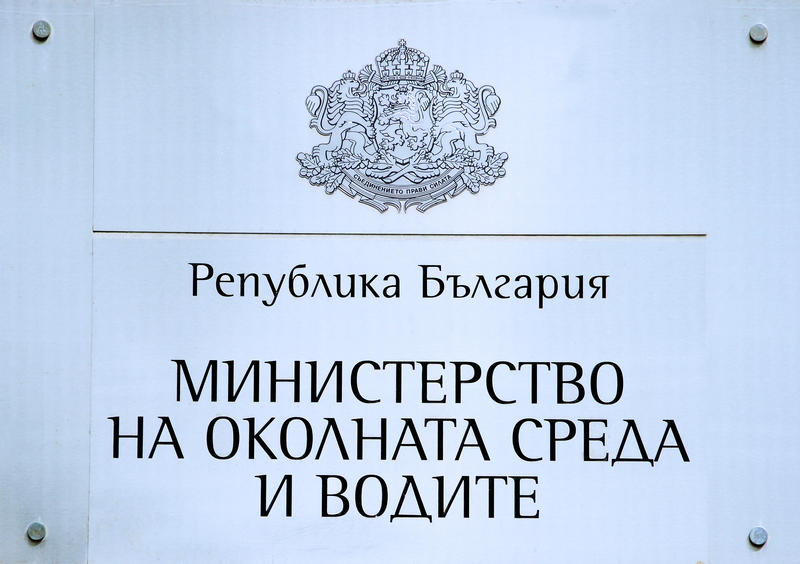The MOEW works actively to reflect EC recommendations in the National Plan for Energy and Climate
02 May, 2024 | 12:51
The Ministry of Environment and Water (MOEW), together with the Ministry of Energy, have started active work to reflect the European Commission's recommendations to Bulgaria for updating the Integrated Plan for Energy and Climate 2021-2030 (IPEC) in order to increase the level of its ambition in line with the agreed 2030 targets.
The MOEW is responsible for developing the GHG emissions and removals aspect of the Decarbonisation dimension of the IPEC. This includes: an account of current GHG emissions and removals - provided by the National GHG Inventory; an assessment of projected GHG emissions and removals by 2030 - provided by the integrated modelling of all sectors; and an assessment of emissions savings from policies and measures to reduce GHG emissions in individual sectors.
The aim is to present the individual policies and measures provided by ministries with quantifiable indicators so that the GHG emissions saved can be assessed and the financial resources required to implement the specific policies and measures can be identified.
Harmonisation with the requirements of the Fit for 55' package in sectors where decarbonisation is difficult, such as industry and agriculture, is in its final stages, following the introduction of the Carbon Cap Adjustment Mechanism and the start of accounting for shipping emissions and their inclusion in the Emissions Trading Scheme. Once the latest IPEC estimates and scenarios prepared by external experts are available, the MOEW will assist the Ministry of Energy in calculating costs for emissions from specific policies and measures.
An important issue for both Bulgaria and other Member States updating their plans in line with the Commission's recommendations is that climate change policies should have continuity and consistency beyond the 2030 IPEC horizon. To this end, the MOEW has developed and proposed for public consultation an Act amending and supplementing the Climate Change Mitigation Act (CCMA), which includes a long-term climate neutrality target for the Bulgarian economy by 2050.
For the transition to be smooth, predictable and socially acceptable, ambitious but achievable interim targets are needed. Efforts are focused on taking a holistic approach to reducing emissions in specific economic sectors and absorbing them in other sectors - from conserved forest and water ecosystems and through good practices in agriculture and forestry. The EC describes in its recommendations that measures in these sectors are crucial and should be formulated and adopted in a process of active dialogue with stakeholders. In addition to the IPEC update, these measures will also be included in the updates to the Long-term Climate Change Mitigation Strategy 2050 of the Republic of Bulgaria and the National Climate Change Adaptation Strategy.
The European Effort Sharing Regulation, which covers the sectors of road transport, heating of buildings, agriculture, small industrial installations, and waste management, sets individual targets for Member States. Bulgaria has been set an individual target of -10% reduction in greenhouse gas emissions from these sectors by 2030 compared to 2005. After consulting with stakeholders, it will be the role of the MOEW to assess with expertese and realistically the potential for emission savings from these measures.
In its latest published guidelines, the EC is relying on a wide range of solutions to carbon sequestration, both through industrial processes and through the conservation and improved functioning of ecosystems, natural landscapes, soils and environmental components. Bulgaria has a high potential for carbon storage in biomass and soils, but this sector cannot compensate for the slower emissions reductions from other sectors, such as energy and transport. There is also still no accurate and accepted assessment of the potential of industrial carbon capture, storage and utilisation in large energy and industrial installations. The energy industry and other industrial sectors face the challenge of increasing demand and innovation for these types of solutions. These will be addressed in the IPEC update.
In cooperation with the Ministry of Energy, the MOEW will continue to provide updates on the progress of the IPEC, as well as to participate in public consultations and stakeholder meetings on the IPEC and its environmental assessment. This dialogue will intensify in the coming two months, in view of the IPEC submission date at the end of June.
